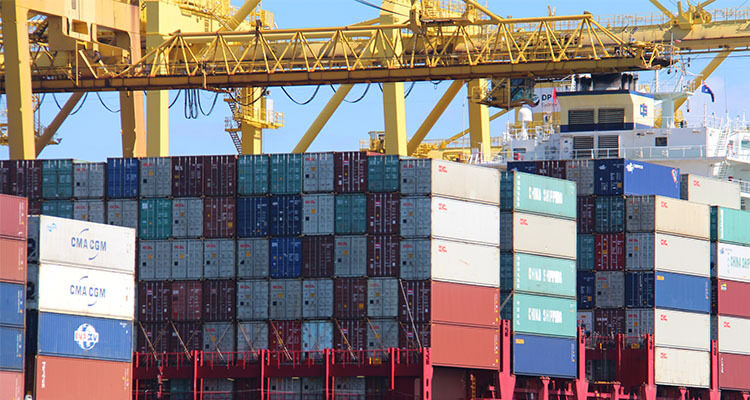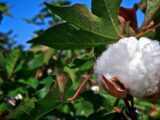
Cotton is an agricultural commodity that's traded on the world market and the vast majority of Australian cotton is exported as raw cotton bales to spinning mills.
Once the cotton bales are ginned, pressed and containerised in Australia they are sent to port for shipping. The cotton bales are warehoused, and once they’re sold and ready to be shipped are loaded into large shipping containers and sent from ports in Brisbane, Sydney and Melbourne.
The majority of cotton produced by Australian farmers is sold to individual cotton merchants in an open, sophisticated and highly competitive system. Merchants compete for the farmer’s business, and then “on sell” the raw cotton to spinning mills who produce yarn.
This marketing system works well in Australia because:
- there is competition for the grower's cotton, meaning to some extent they can shop around for the price they want
- the merchants take the risk in terms of on-selling the cotton to the spinning mills, which means the grower always gets paid
The majority of Australian cotton is sold using forward contracts (selling physical cotton forward for up to five years) and there is also markets for hedging/pricing cotton including using futures, options, Bank SWAPS and on call contracts. Influences on Australian cotton price include the New York Cotton futures, the value of the Australian Dollar, basis and the forces like global cotton supply and demand.
How to source Australian cotton bales
The Australian Cotton Shippers Association (ACSA) represents Australia's cotton merchants and keeps an update-to-date list of their members here .






